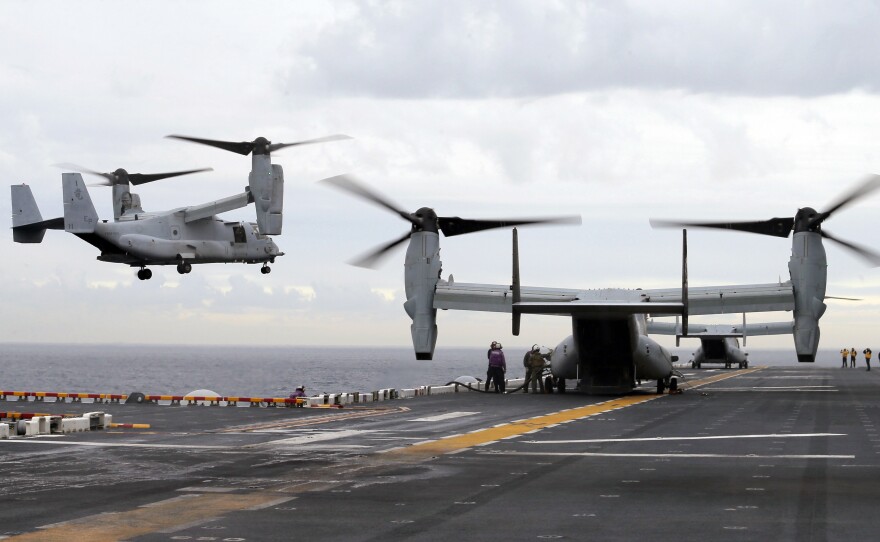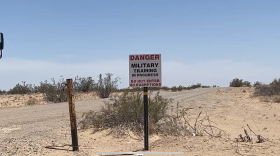Navy and Marine Corps Ospreys will resume flying over San Diego after the Pentagon announced Friday a three-month grounding of the aircraft was over.
All V-22 Ospreys were grounded after an Air Force Special Operations Osprey crashed off the coast of Japan in November.
Maj. Gen. Pat Ryder, the Pentagon press secretary, said Friday that although the investigation into that crash is ongoing, preliminary results show a "materiel failure" caused the crash.
Those results have the department confident in the safety of the Ospreys to fly, Ryder said Friday.
"The decision followed a meticulous and data-driven approach, prioritizing the safety of our aircrews," Ryder said during a news conference at the Pentagon.
The Navy said it's implemented "maintenance and procedural changes" to address the materiel failure that led to November's crash.
The Pentagon did not provide further details about the cause of the crash.
The Osprey is a tiltrotor aircraft that can take off and land like a helicopter, but it flies like a plane by rotating its engines. They’re used to carry cargo and personnel.
In San Diego, Naval Air Forces Command said the Navy will prioritize safety in returning its aircraft to flight status.
Its most experienced pilots and instructor pilots from certain units will be the first to fly, and only during the day. Then co-pilots, followed by the rest of the Osprey fleet crews.
A spokesperson told KPBS the service expects it will be several months until the service's Ospreys resume full operations, which includes delivering cargo and personnel to ships at sea.
At the Pentagon, Ryder offered condolences to the families of those killed in Ospreys.
"Our nation's service members and their families make extraordinary sacrifices to safeguard our freedom and our security, and in return, we owe them an unwavering commitment to their safety and well-being,” Ryder said.
The aircraft had a long and difficult development period with several fatal crashes.
An investigation found the 2022 Imperial County crash was caused by a so-called “hard clutch engagement” — a recurring problem with Ospreys.
In under two years, 20 service members have been killed in four V-22 Osprey crashes.
Among them were five Camp Pendleton Marines killed when their Osprey crashed in Imperial County. An investigation found that crash was caused by a "hard clutch engagement" — a known issue with Ospreys.
November’s crash near Japan remains under investigation by the Air Force.







